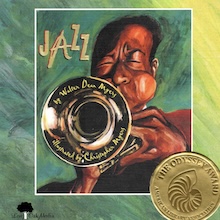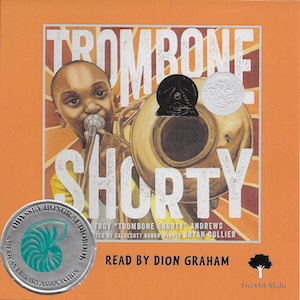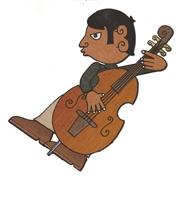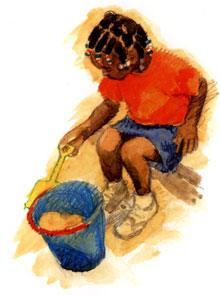
We Are Grateful: Otsaliheliga
Available Format
Audio Sample
Reviews
Traditional Native American flute music introduces this seasonal tour of the contemporary Cherokee Nation’s culture in a paired picture book and audio. Opening with the Fall (“Uligohvsdi”), families rake leaves, clean houses, wear new clothes, and enjoy the Great New Moon Ceremony. In Winter (“Gola”) children go sledding, build a snowman, and savor buttery bean bread and steamy hominy soup. In Spring (“Gogeyo”) they celebrate the joy of the season’s first harvest, when they plant strawberries, “an ancestral sweet-smelling reminder not to argue with each other.” In every season, a chorus repeats “Otsaliheliga,” which means “We are grateful.” Cherokee words are always pronounced slowly and clearly by several authentic narrators of different ages, making the reading accessible to all. The audio offers a page-turn option. Back matter adds information about several references in the main body. Author’s notes include more explanations of Cherokee culture as well as pronunciation guides referencing Sequoyah’s invention of the Cherokee syllabary in which he codified the development of the Cherokee written language. A unique aural presentation of present-day Cherokees sharing their traditions.
The sounds of crickets, a crackling campfire, and music greet listeners as five narrators share the meaning of the term "otsaliheliga," a Cherokee word meaning "We are grateful." Each narrator lends a unique voice to the story, complementing the diverse contemporary Cherokee families who are depicted celebrating every season. Cherokee pronunciations are beautifully delivered to help listeners understand the language, while sounds of the forest and the community create ambiance. Listening with the picture book is the ideal way to appreciate this charming and important work with themes of being thankful, honoring family and ancestors, and coming together for celebrations. To give broader context, Traci Sorell narrates additional vocabulary and an author's note in a bright voice, and for further learning, Agalisiga Mackey clearly delivers the Cherokee syllabary.
Pirates! Shipwrecks! Lion attacks! Chicken-napping! Louise is a chicken with a yen for adventure. She slips away from the humdrum world of the farm and sets out to sea, only to be captured by pirates and nearly fricasseed. Home sounds good, but adventure calls again as she joins the circus and does a daring high-wire act that ends with her nearly becoming a lion's lunch. Again the farm seems a safe retreat, but when you have drumsticks itching for adventure you know you'll be off again. This time our saucy French hen follows in the footsteps of classic adventurers such as Indiana Jones, visits a fortune-teller, is captured by a tall dark stranger, and frees fellow chickens so that they, too, can cluck free! When she returns home, she tells the other chickens of her adventures and they are appropriately impressed and horrified. Home is a welcome, safe, refuge-but can Louise really settle down there? This delightful feathered frolic by Kate DiCamillo (HarperCollins/Joanna Cotler Books, 2008) is masterfully performed by Barbara Rosenblat who reads the story with fine pacing and energy and creates unique personalities, voices, and accents for each character. Light background music and sound effects make this a treat for the ears as well as the imagination. As students enjoy the vocal presentation, they can also peruse Harry Bliss's hilarious illustrations, filled with quirky details (some of which only adults will catch). This fine feathered feast for eyes and ears will be enjoyed by those with a thirst for adventure.




